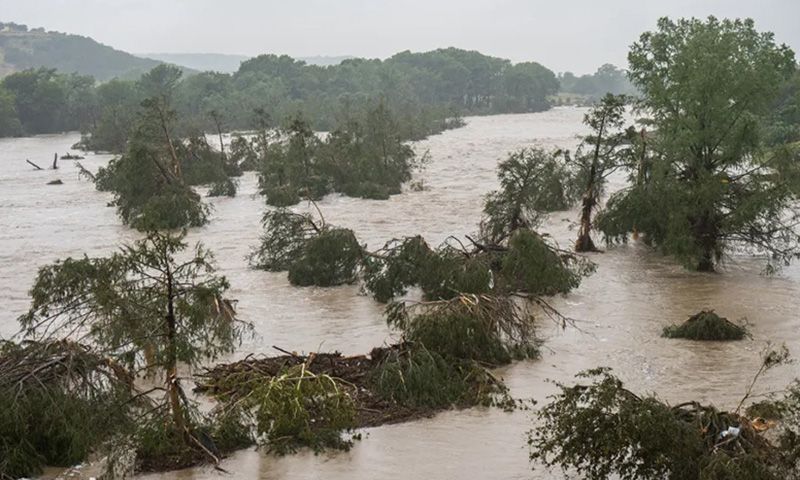
The donation represented more than money – it was a piece of his soul, given freely to strangers he would never meet. But even that wasn’t enough for the coach who had built his career on being present for his players in their darkest moments.
A Father’s Journey
Against the advice of his management team and without fanfare, Knoblauch boarded a plane to Texas. He didn’t wear team colors or identification. He simply showed up at one of the relief shelters outside Austin, introduced himself as “just Kris,” and asked how he could help.
Volunteers at the shelter later described a man who seemed to carry the weight of the world on his shoulders. He served meals to grieving families, helped distribute supplies, and most importantly, he listened. He sat with mothers who had lost their daughters, fathers who couldn’t speak through their tears, grandparents who had outlived their grandchildren.
“He didn’t try to fix anything,” recalled volunteer coordinator Jennifer Martinez. “He just sat with people in their pain. Sometimes that’s all you can do – be present in the darkness.”
One moment has stayed with shelter workers: Knoblauch spending nearly three hours with Elena Rodriguez, whose 13-year-old daughter Sofia was among the victims. They didn’t speak much. They simply sat together, two parents sharing the kind of sorrow that transcends words.
The Return to Silence
After two days in Texas, Knoblauch disappeared as quietly as he had arrived. He returned to his small cabin in rural Alberta – not to his usual home, but to a place where he could process what he had witnessed. No interviews. No social media posts. Just silence, solitude, and the crushing weight of 27 young lives lost too soon.
His assistant coach, who spoke on condition of anonymity, described finding Knoblauch weeks later still struggling with what he had seen. “He’s changed,” the assistant said. “Hockey doesn’t seem as important anymore. Nothing does, really. He keeps saying he can’t understand how the world keeps spinning when those girls are gone.”
The Ripple Effect of Quiet Goodness
Word of Knoblauch’s actions eventually leaked, not through publicity campaigns but through the grateful whispers of families he had comforted. The story spread organically, person to person, heart to heart. Soon, other coaches, players, and sports figures began their own quiet acts of service.
The Edmonton Oilers organization, following their coach’s lead, established a permanent fund for disaster relief. But they did it quietly, without fanfare, understanding that some acts of compassion are too sacred for publicity.
When Grief Becomes Love
In the end, this isn’t really a story about a hockey coach or a donation or even a natural disaster. It’s a story about what happens when we allow ourselves to feel the full weight of others’ pain, when we choose love over indifference, presence over distance.
Twenty-seven young girls died in those Texas floods, and their absence will echo through eternity. But in the silence of an Alberta cabin, in the quiet dignity of a coach who simply showed up, their lives continue to matter. Their memory lives on in acts of kindness that expect nothing in return.
Sometimes the most profound acts of humanity happen when no one is watching. Sometimes the greatest heroes are those who never wanted to be heroes at all.
And sometimes, in the midst of overwhelming darkness, the simple act of caring – truly, deeply caring – becomes the light that guides us home.

